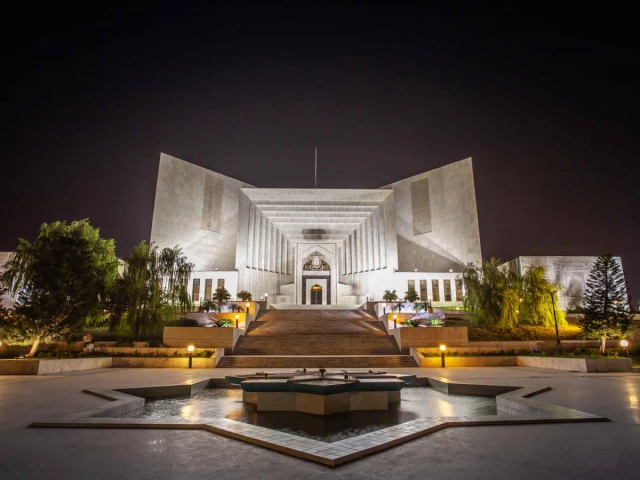Psychological abuse is a ground for divorce: SC
Top court redefines scope of cruelty, women's right to seek divorce

The Supreme Court has ruled that cruelty within marriage is not confined to physical violence but also includes psychological, verbal and emotional abuse, as well as behaviour that makes it impossible for a woman to live with dignity and safety in her home.
In a detailed 17-page judgment authored by Justice Ayesha Malik, the court set aside the verdicts of the Peshawar High Court (PHC) and family court, ruling that a court cannot grant khula without the woman's consent, adding that psychological abuse in a marital relationship is as grave as physical violence.
The court further held that a husband's second marriage without the first wife's consent constitutes a valid ground for dissolution of marriage.
The judgment urged courts to use careful and respectful language when addressing cases involving women and clarified that while parliament did not rigidly define the term "cruelty" in law, it provided examples to guide the courts.
"These examples are not exhaustive but illustrative," the court observed, noting that judges are empowered to recognise different forms of cruelty and deliver justice accordingly.
The court elaborated that cruelty extends beyond physical harm, encompassing conduct that inflicts mental or emotional pain and makes it impossible for a woman to live in her marital home with respect and peace.
The SC further observed that courts have consistently recognised cruelty as conduct not limited to physical violence, adding that it may consist of separate acts that, though seemingly unconnected, cumulatively cause harm and make continued cohabitation unbearable for the wife.
Cruelty may consist of any behaviour that causes a woman distress, hopelessness, or loss of confidence. If the effects are severe and render married life impossible, it qualifies as cruelty, the court ruled.
The judgment also referenced international law, stating that the International Covenant on Civil and Political Rights (ICCPR) prohibits "torture or cruel, inhuman or degrading treatment," and that the UN Human Rights Committee has extended these protections to cases involving domestic abuse in marriage to ensure justice and protection for victims.
The SC noted that acts of cruelty must be assessed with sensitivity to social context, personalities, and the practical realities of married life.
It cautioned that family courts should not apply criminal standards of proof to such cases, as the issue is not whether an offence has been proven beyond reasonable doubt, but whether the conduct complained of makes it unreasonable to expect a wife to continue in that relationship.
Emphasising that cruelty was a subjective measure, the court said it should be evaluated based on the impact on the affected woman rather than through rigid legal classifications or technical evidentiary rules.
The judgment further detailed that cruelty may manifest as physical abuse such as slapping, beating, or assault.
Psychological cruelty such as humiliation, verbal abuse, or false allegations of infidelity; emotional cruelty through neglect or indifference; or oppressive household environments where hostility or coercion by in-laws is tolerated or encouraged by the husband, the ruling noted.
The SC accepted the woman's appeal and declared the earlier family court and appellate decisions, as well as the May 2024 order of the PHC, null and void to the extent of khula, mehr and maintenance.
It held that the marriage stood dissolved on the ground of the husband's second marriage, and therefore, the wife was not required to return her mehr.
The petitioner's counsel had argued that the family and appellate courts had ignored her client's statements and evidence, granting khula without her consent and depriving her of her mehr.
The family court had concluded that the husband never paid the mehr and had treated it as waived in lieu of khula.
However, the SC ruled that such findings were legally flawed and reaffirmed that cruelty must be judged in light of each woman's experience within her marriage.



1724319076-0/Untitled-design-(5)1724319076-0-208x130.webp)















COMMENTS (4)
Comments are moderated and generally will be posted if they are on-topic and not abusive.
For more information, please see our Comments FAQ